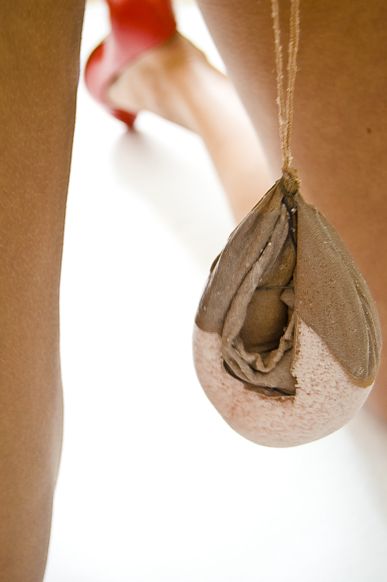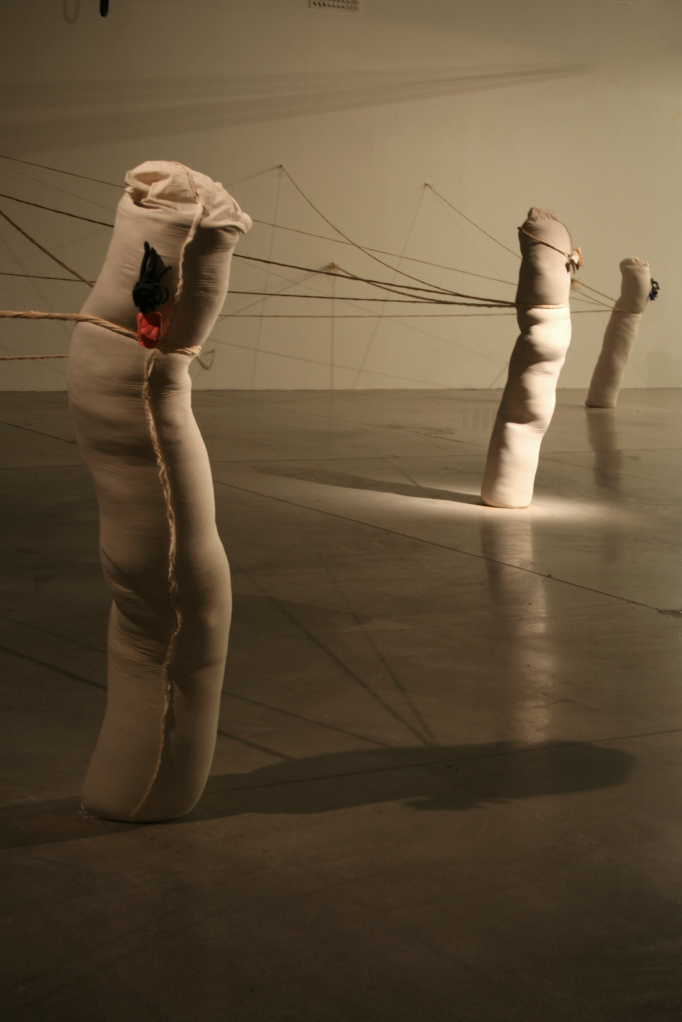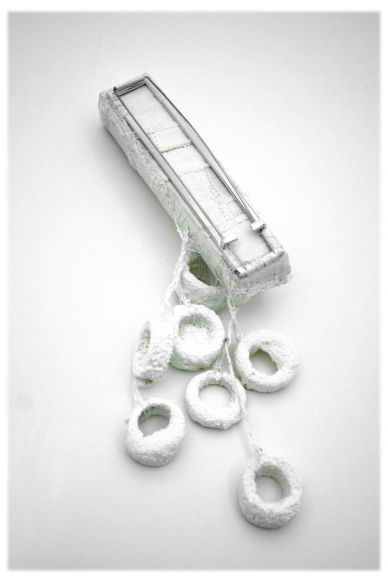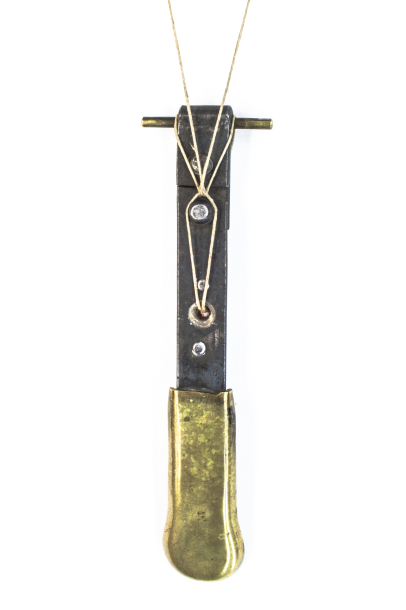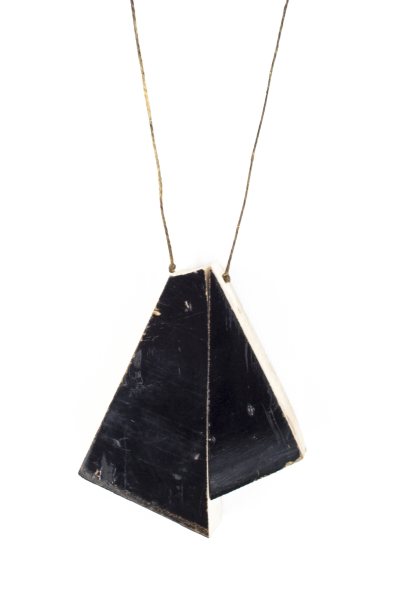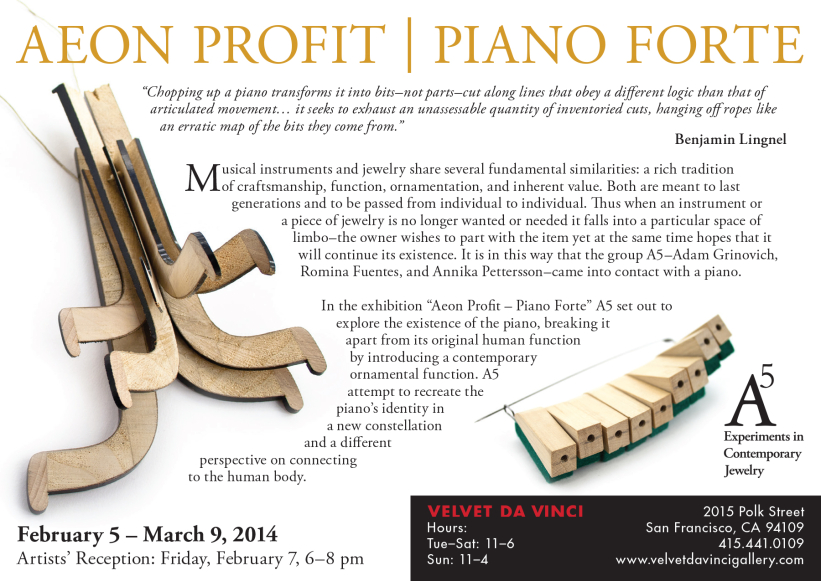Projects
Porn
As a response to an open call for an exhibition about the relationship between jewelry and pornography, each member of A5 created a piece of jewelry and a photograph that illustrated his or her personal relationship to the idea of pornography in contemporary culture
Chicos
The first public presentation of the group A5 was done through an exhibition at Konstfack University, the place where the three artists met. As a display method, A5 filled simple canvas tubes each with 85 kilograms of sand, establishing a sense of danger as well as serenity that activiated the jewelry pieces that adorned each element.
Gifts
Every year an artist is invited to make pieces of jewelry for the graduating class of Interior Architechture at Konstfack University. For this assignment A5 generated a series of unique objects by swapping pieces and freely working on each others projects, ultimately creating a unified series of works as gifts for the graduating students. The pieces were then photographed on the the then president of Konstfack University Dr. Ivar Björkman.
